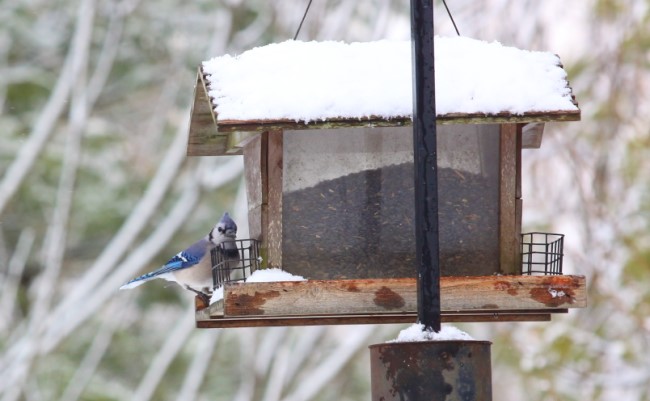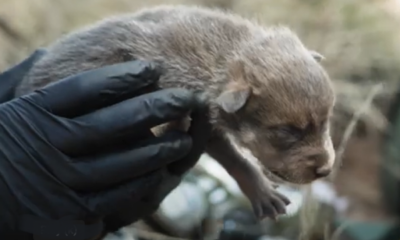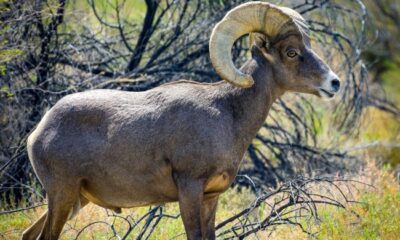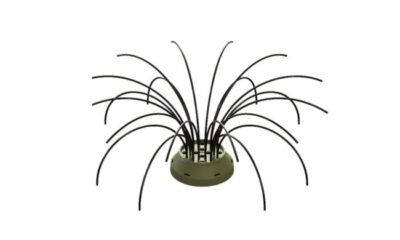Sports
Fire Up the Binos–It’s Bird-Feeding Season!

Is there anything more cozy on a cold day than watching birds visiting your feeder? Fire up the binos, because it’s bird-feeding time! It’s a great way to learn about year-round avian species as well as the visitors that’ll drop in from time to time. It’s good for the birds, and good for your soul. However, there are some things you need to know to prevent your feeder from inadvertently attracting bears (or, worse, becoming a vector for avian diseases). Here are some basic bird-feeding tips!
– Make your own feeding mixture to maximize the number of species visiting your yard. Black oil sunflower seed is a favorite of many birds, but when mixed with “thistle” (or “nyjer”) or cracked corn you will be sure to attract a wide variety of species. Don’t forget the suet to attract woodpeckers and even chickadees.
– Mix up the type of feeders you use. Hopper feeders are great for large birds such as blue jays, while tube feeders are best for smaller birds. Elevated tray feeders will attract birds that usually feed on the ground including juncos and larger bodied winter visitors such as evening grosbeaks.
– Place your feeders near natural habitat, or even add a habitat for birds to hide. A Christmas tree is a great addition to a snowbank next to your feeder to provide quick cover.
– Keep your feeders clean. Only put out enough food for a day, and wash feeders every couple of weeks in a 10 percent bleach solution and let dry to prevent the spread of bacteria and disease.
If you decide to feed birds, remember:
– Feeding can expose birds to hazards they might otherwise avoid. The risks of predation are higher close to people, especially from domestic cats — the leading cause of bird deaths in North America. Keep cats inside and take feeders down if predators become frequent visitors.
– Don’t feed birds when bears are active. Most bears are in dens from December 1 to April 1, but some will delay hibernation or re-emerge to feed during periods of warmer weather. Remove bird feeders immediately if you see signs of bears or know a bear is active in your community. Bears that learn to associate food with a house will continue to return, potentially leading to property damage and dangerous encounters with people.
– Once you’ve started feeding the birds, keep your feeders stocked. Although wild birds are not entirely dependent on bird feeders, they can become accustomed to this easy food source. If you wish to stop feeding during winter months, gradually taper off the amount of food you provide rather than stopping abruptly, giving the birds a chance to find other food sources. This is especially important when food is scarce in late winter or during periods of extreme weather.
– Finally, report your observations. While watching your bird feeders, you can participate in one or more bird monitoring projects by looking up the Audubon Christmas Bird Count, the Great Backyard Bird Count and Project Feeder Watch and eBird — all collect important information for understanding bird populations.
As winter sets in, find a comfortable spot inside where you can watch the birds visiting your feeders. Figure out what birds they are, observe how they interact with each other, and see what they prefer to eat. It’s a perfect way to get to know the birds around you better.
-

 Adventure1 month ago
Adventure1 month agoDoes the “Big Beautiful Bill” Have a Public-Lands Wart?
-

 Adventure2 months ago
Adventure2 months agoHowling in Cuckoo: How Mexican Wolves are Fostered
-

 Adventure2 weeks ago
Adventure2 weeks agoREACTION: Trump’s Make America Beautiful Again Agenda
-

 Gear3 weeks ago
Gear3 weeks agoLet Freedom RING! Primary Arms’ Independence Day Category Sale Starts NOW
-

 Adventure4 weeks ago
Adventure4 weeks agoU.S. Bighorn Sheep Going Home to Canada
-

 Adventure1 month ago
Adventure1 month agoYour Dream Hunt Could Be a Movie & Leupold Can Help
-

 Fishing11 hours ago
Fishing11 hours agoMy Wacky Bush Brings All the Bass to the Yard
